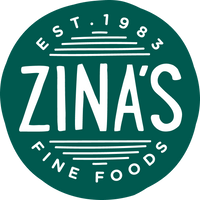
Here is the commentary from Valentin Chelnokov, CEO of Zina’s Salads Inc., for the Food Institute on the influence of anti-obesity medications like Ozempic on the food industry:
As the CEO of a company known for our delicious comfort foods, I've often been asked how the rise of anti-obesity medications, like Ozempic, might impact us. Many assume that such developments would be a setback for us. However, I see it differently.
Ozempic, originally intended for obese individuals with medical needs, is poised to expand its reach. It's likely that soon, it won't just be those with obesity using it, but also individuals looking to enhance their physical appearance. This shift could mean a broader market for these medications.
Future advancements in this class of drugs might make them more accessible and less intimidating—potentially moving from self-injections to oral or nasal forms. As these medications become more affordable, their use will spread. When the cost of such treatments drops to around $300, we’ll likely see a significant uptake. Celebrity endorsements and advertisements have already started to cement Ozempic's place in public consciousness, hinting at its long-term influence on societal health practices and perceptions of weight, beauty, and food consumption.
From our standpoint as a food manufacturer, this change is more of an opportunity than a challenge. While overall calorie intake might decrease, we don't expect consumers to cut down on their spending on food, especially at supermarkets. Instead, they might shift to buying smaller portions of higher-quality products. This is a key point: consumers will prioritize taste, preparation methods, ingredient origins, and environmental impact over sheer quantity.
We anticipate that consumers will become more discerning about what they eat, focusing on quality and ethical sourcing. As their appetite is moderated, they'll seek out meals that are not only delicious but also align with their values, particularly in terms of health and sustainability.
At Zina's Fine Foods, we've always prioritized health, taste, and quality. We see these changes as a chance to innovate and expand our offerings. We're excited about introducing more organic options and responsibly sourced ingredients that were previously cost-prohibitive. These products will be offered in smaller, individually packed portions at price points reflecting their enhanced quality, allowing consumers to align their purchases with their new dietary preferences.
I recently shared my views on this topic as an expert for the Food Institute. You can read more about it here.
The food industry is on the brink of transformation with the rise of medications like Ozempic. Manufacturers and restaurants that have focused on low-cost, mass production will need to adapt. Those businesses that have thrived on offering cheap options to the masses may find themselves reevaluating their models to meet new consumer behaviors. In the next decade, we’ll likely see many large companies scrambling to reduce their footprint while staying profitable.
For companies like ours, which have always championed quality and sustainability, this shift is not just welcome—it's an exciting opportunity. We're ready to lead and grow in a market that increasingly values conscious consumption.






